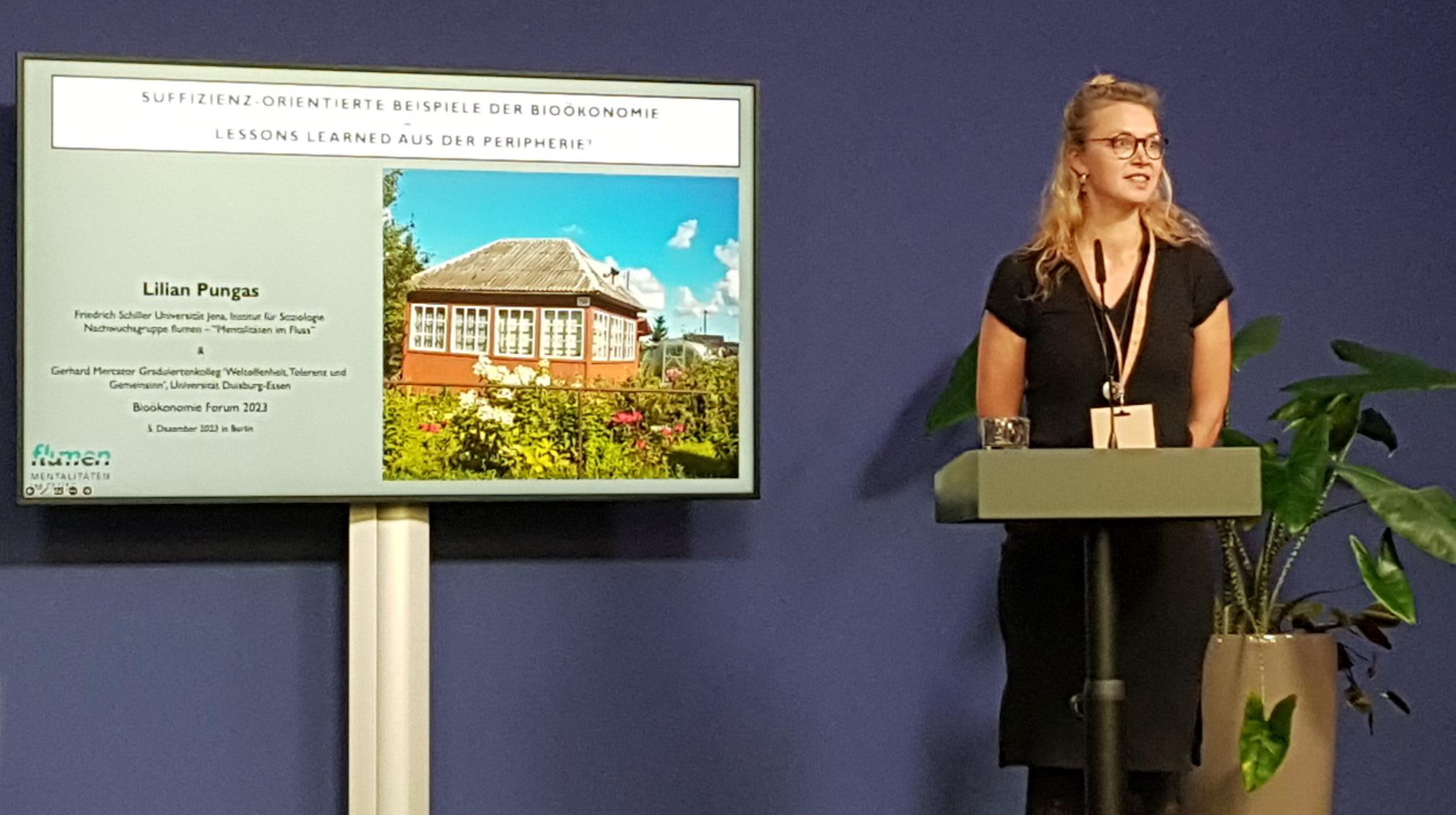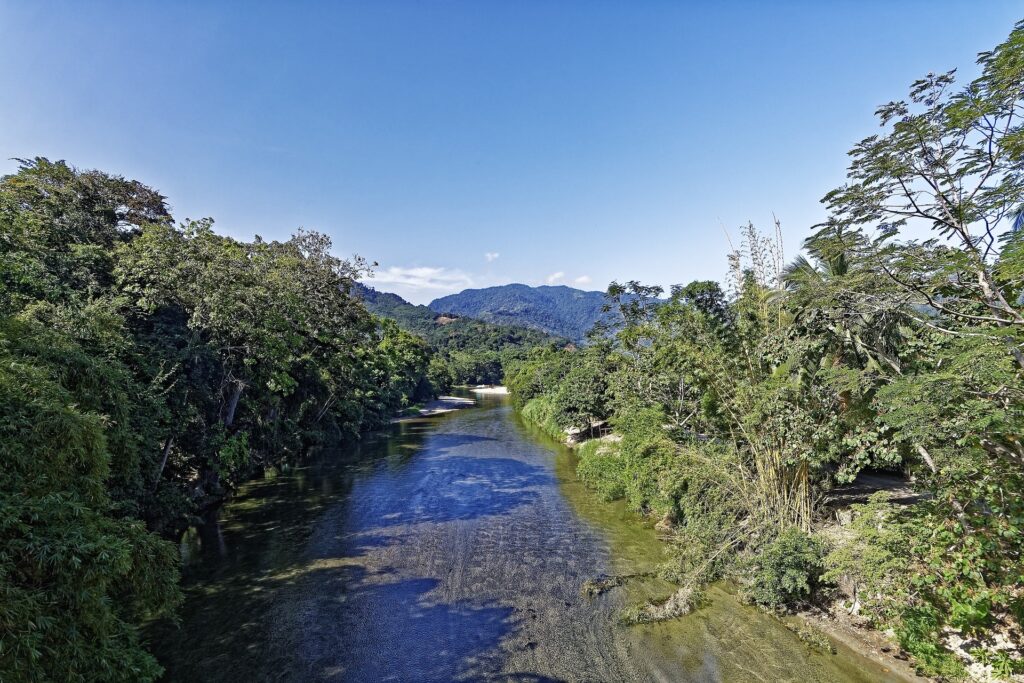Within the Scientific Coffee “Human-Forest-Relationships” we present:
22 November 2023
13-15 CET / 14-16 EEST
Input: Mónica Hernández Morcillo (Senior Researcher on Forest, People and Innovation, Eberswalde University of Sustainable Development, Germany)
Title: „A Regenerative Approach to Forestry: Insights from the Indigenous Culture Kogi“
zoom-link: https://uni-jena-de.zoom.us/j/61027392103, Meeting-ID: 610 2739 2103, code: 513063
Abstract:
Today, as the multiple planetary crises converge irrupting our daily life and threatening our existence, we are increasingly becoming aware of our interdependence with nature. A core cause of the unprecedented degradation of the planet lies in our perceptions as separated from nature. As the changing environment emerges, we are faced with the urgent challenge of finding new ways of inhabiting and regenerating the planet. Yet, most of the current efforts are dedicated to researching and transforming the external world of policies, economies, or ecosystems, overlooking other important sources of knowledge. In this context, to reach new answers, an exchange between indigenous and scientific knowledge as well a transferences from global South to global North is urgently needed. The Kogi are one of the last civilisations on the American continent to have their cultural and spiritual identity at a quasi pre-Columbian level to this day. They hold a deep understanding of the interrelationships in nature that we, with our scientific methods are beginning to understand. This enables them to assess the effects of human interventions in nature and makes them an invaluable ally in the search for effective and motivating sustainable pathways for the future of forestry.
Biography:
Dr. Mónica Hernández Morcillo is a sustainability scientist counting with ample experience coordinating international environmental projects with a focus on biodiversity conservation, forestry innovations, and rural development. Before being appointed as Senior Researcher at the Department of Bioeconomics in the University for Sustainable Development Eberswalde, she worked at the Humboldt University and at the Brandenburg Academy of Science managing various EU-FP7 and Horizon 2020 research projects. Previously she worked as Project Officer at United Nations Environment Programme-World Conservation Monitoring Center, in Cambridge (UK) and Nairobi (Kenya). There she coordinated the UN high-level report to advance the biodiversity agenda with contributions of 25 UN Agencies and other International Organizations. Previous to this experience she led a restoration project in Pacaya Samiria, the largest protected area of the Peruvian Amazon to regenerate biodiversity and ecosystem functions while enhancing the well-being of 27 indigenous communities living in the buffer zone. She has been as well involved in the IPBES consultations for the Regional German Assessments of Biodiversity and Ecosystem Services. Currently, she is habilitating at Leuphana University developing a regenerative approach to forestry. To this aim, she closely works with indigenous communities from Colombia and México to exchange regenerative practices in forestry.
She holds two Master’s degrees in Forestry Engineering and International Development and a PhD from Copenhagen University on Knowledge Synthesis Methods for integrated assessments of socio-ecological systems. Her technical background provides her with excellent knowledge of sustainable forest management, participatory governance, and analysis of geospatial information. Her extensive hands-on experience handling international projects equips her with solid capabilities to manage complex organizational tasks and coordinate large partnerships while successfully achieving midterm milestones and final goals.”
***
Scientific Coffee “Human-Forest-Relationships”
Let’s sit and talk in the scientific café! The “Scientific Coffee HFR” sessions give room for open and relaxed discussions on current research subjects related to human and society relations to forests. It warmly welcomes all interested in forest-related research to join online sessions.
Each session lasts approximately two hours. It starts with a 30-minutes presentation of a guest speaker. After the presentation, with coffee or tea and cookies at hand, participants have plenty of room for an open discussion and exchange.
The “Scientific Coffee HFR” takes place two to three times per semester on Wednesday afternoons.
Guest speakers wanted!
If you are interested in contributing to the “Scientific Coffee HFR”, please contact either judith.kiss(at)uni-jena.de or tuulikki.halla(at)uef.fi with info on your subject (title and short abstract) and a preferred Wednesday (13-15 CET / 14-16 EET).
The idea for a scientific coffee HFR came up during a cooperation between Finnish and German researchers in 2021. The Finnish research project Human-Forest Relationships in Societal Change and the German research group Mentalities im Flux (flumen) organized the workshop “Contested Society-Nature-Relations. Forest related Emotions, Practices & Conflicts in Times of Societal Change” in May 2021. The first “Scientific Coffee HFR” session was held in September 2021.
The “Scientific Coffee HFR” is organized by:









